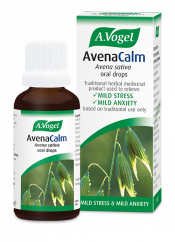What is GAD?
Generalised Anxiety Disorder is a long-term anxiety problem which is said to affect up to 5% of the adult population. It is most common in young women and causes the sufferer to feel worried or fearful nearly every day for at least 6 months. Some people suffering the problem may be described as being simply terrible worriers that see danger and problems everywhere.
For some, it is a lifelong condition. GAD should not be confused with normal levels of anxiety - as a rule of thumb, it features in everyday life and conversation and can disrupt normal activities.
The level of worry that a GAD sufferer experiences is much greater than the situation deserves, and the sufferer is still unable to lift their mood or rationalise their feelings of fear and anxiety. Often, the emotion is not related to a specific circumstance which means that the feelings of anxiety recur. These are not as intense as those experienced during a panic attack or anxiety attack, yet the prolonged nature of the condition makes it very difficult to ever relax.
What are the symptoms?
Generalised anxiety disorder is characterised by excessive worrying and intrusive and uncontrollable feelings of dread and fear. Each person who suffers from GAD is affected differently, as some people are always expecting the worst, while others are unable to put a finger on the reason why they are feeling uneasy.
Generally speaking, the most common GAD symptoms are realised in two forms - physical and emotional.
Physical symptoms include:
- Increased heart rate
- Sweating, especially of the palms of the hands
- Shaking or trembling
- Problems sleeping
- Feeling sick
- Headache
Often physical symptoms occur because your brain is activating different parts of your nervous system at once. This causes different organs, such as your heart, to work more quickly resulting in a rapid heart rate, and different nerves, such as those in your scalp, to be more sensitive, causing headaches.
Emotional symptoms include:
- An inability to switch off or to stop thoughts running through your head
- An inability to cope with surprises. You need to know exactly what is going to happen in the future
- Difficulty concentrating or focusing on a task
- A continued feeling of dread or apprehension, although you may not know why.
What treatments are available?
If there is an obvious cause for your worry, then tackling this at the root will be the first step towards finding a solution. However, often with GAD sufferers this is not the case and no single cause can be found to be responsible for the symptoms.
Psychological treatment is often recommended to start with as it is not intrusive to your body and will be the least damaging to other aspects of your health. As well as this, they are likely to have longer lasting effects, although they do require patience and dedication for them to be successful.
One of the most common and effective psychological treatments is Cognitive Behavioural Therapy (CBT). This is a technique which allows you to regain control over your thoughts. It teaches you to recognise a reasonable and appropriate level of worry for a particular situation and also shows you how to switch off your mind and relax. It teaches you how to positively respond to a situation rather than always look for the worst possible scenario.
Alongside psychological treatments are herbal remedies. There is a range of herbs that have been traditionally used to treat anxiety problems. These include Valerian which has natural tranquilising properties, due to its ability to change chemical activity in the brain. This herb can be found in licensed herbal remedies such as Stress Relief Daytime .
Avena sativa is another herb used to treat symptoms of anxiety. It was traditionally used as a nerve tonic – today, we know that it acts by calming receptors in our nervous system.
If you have not found psychological or herbal treatments to be effective, your doctor will be in a position to discuss the use of conventional medicines with you. Many of these treatments are anti-depressants or beta-blockers. Some are designed only for short term use, and others are appropriate for long-term use. It is important to discuss all of your symptoms with your doctor to be able to establish which medication would be most appropriate.








